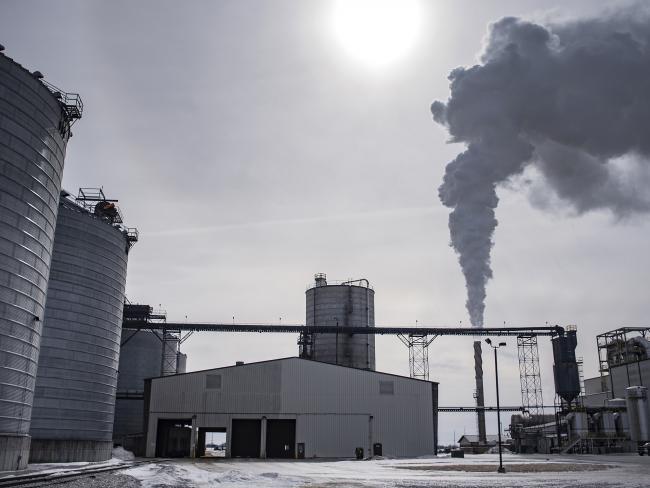(Bloomberg) -- The Trump administration is weighing a plan that could force some of the nation’s biggest oil companies to come clean about their bids to dodge U.S. biofuel mandates.
The Environmental Protection Agency said in a notice Friday it was opening a 15-day window for the public to comment on whether it should reveal “basic information” about refineries seeking waivers from annual biofuel quotas, including the names of the companies and facilities seeking the exemptions.
For years, the agency has kept those details private, claiming they are confidential business information. A surge in waivers,- including some issued to refineries connected to major oil companies, has spurred complaints from biofuel advocates demanding more transparency.
If oil companies “aren’t willing to put their names on waiver requests claiming that they can’t fairly compete in their markets, even as they are reporting record high profitability, then they shouldn’t submit them.” Gene Gebolys, the president of World Energy Alternatives LLC, said in an email.
‘Hardship’
Under federal law, the EPA can exempt small refineries using no more than 75,000 barrels of crude per day from annual biofuel quotas if they face a “disproportionate economic hardship.” The exemptions were automatically granted to a slew of small refineries initially, but the agency now makes decisions on a case-by-case basis, guided by an Energy Department’s economic analysis of each petition.
HollyFrontier Corp. and Calumet Specialty Products Partners LP are among refiners that have said they’ve received exemptions in recent years. Carl Icahn’s CVR Energy Inc. has declined to comment on whether it received waivers. Still, a February filing showed that CVR spent $60 million on biofuel compliance credits in 2018, a 76 percent drop from the company’s $249 million tab in 2017. Valero Energy Corp (NYSE:VLO). executives in January pointed to the exemptions as the reason behind lower prices for the credits.
The EPA doesn’t divulge the names of refineries that seek or win waivers, even though last year it began publishing aggregated data on the small refinery exemptions. However, some companies have acknowledged securing those waivers in filings with the SEC.
‘In the Dark’
“It’s just bogus that the refiners are hiding behind” claims of confidential business information, said Geoff Cooper, president of the Renewable Fuels Association. “These decisions have been made in the dark, and that’s just not good government.”
Oil industry advocates warned that more visibility on small refinery exemption requests may cause harm to the companies seeking them, as well as broader markets.
“The data underlying small refinery exemption requests reflects the underlying financial health of facilities in the highly competitive refining sector,” Fueling American Jobs Coalition, which represents a group of independent refiners, small retailers and labor unions, said in an emailed statement. “Such information can affect access to capital for marginal refineries and can make them attractive targets of acquisition, literally moving markets.”
Republican senators Shelley Moore Capito of West Virginia and John Barrasso of Wyoming, last year warned the administration that disclosing sensitive information about small refineries seeking waivers could “compound the harm to small refineries.”
The EPA has granted 35 refineries waivers from 2017 biofuel blending quotas, up from seven approvals targeting 2015 requirements. In the same period, the number of denied waiver requests dropped to zero from six, according to agency data. The government currently is considering 39 applications for waivers from 2018 requirements.
(Updates with World Energy Alternatives comment in fourth paragraph.)
